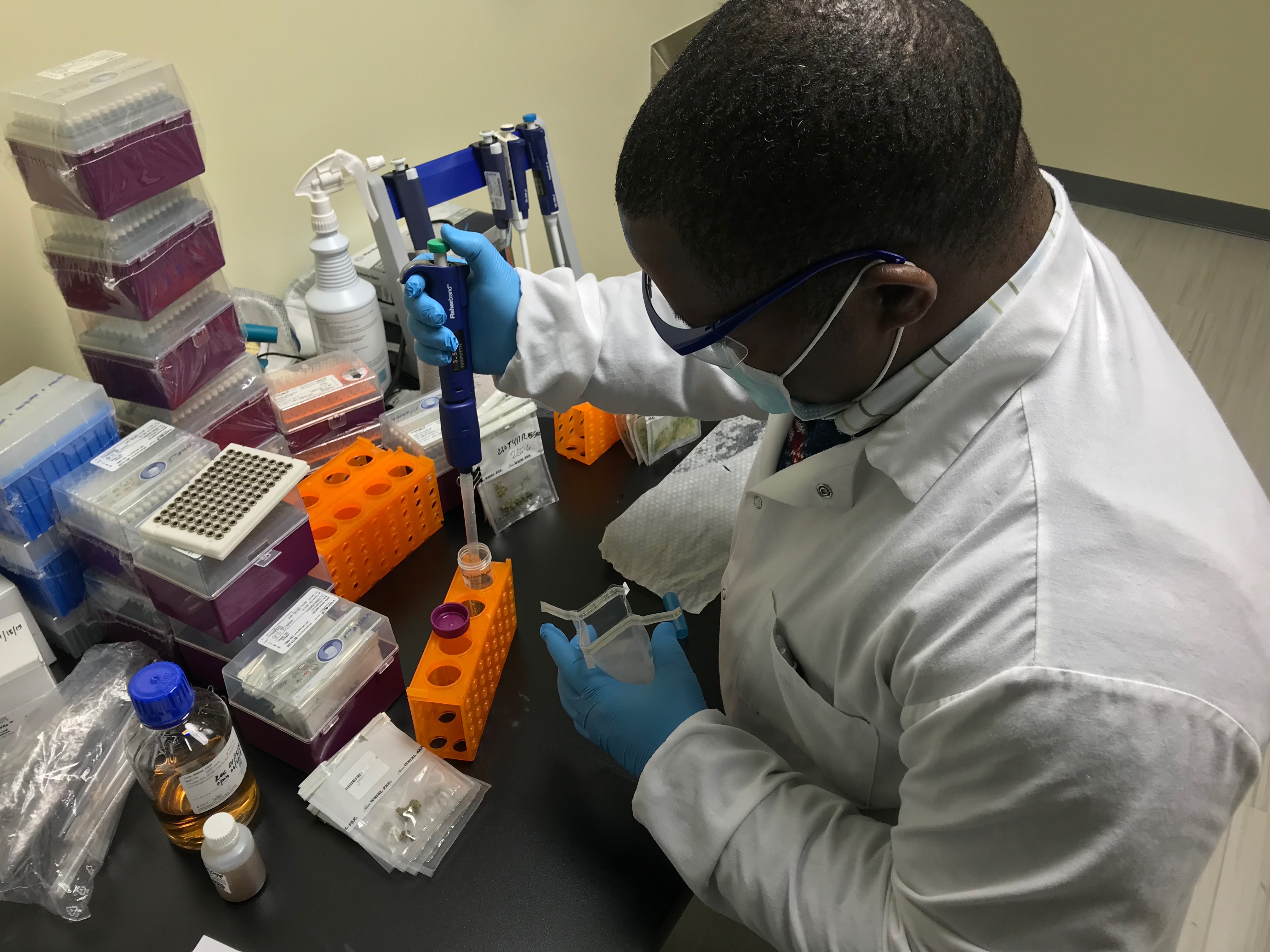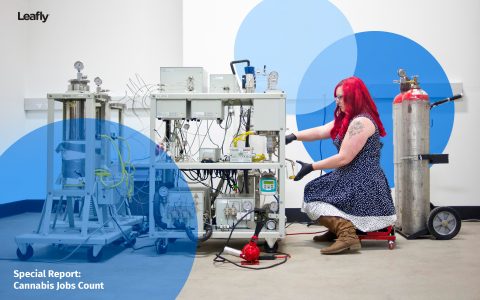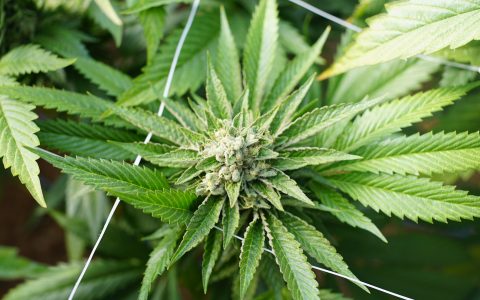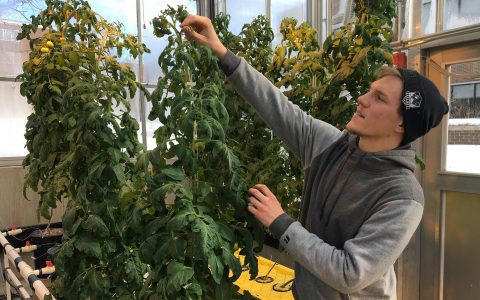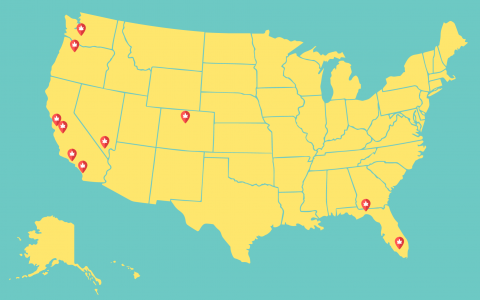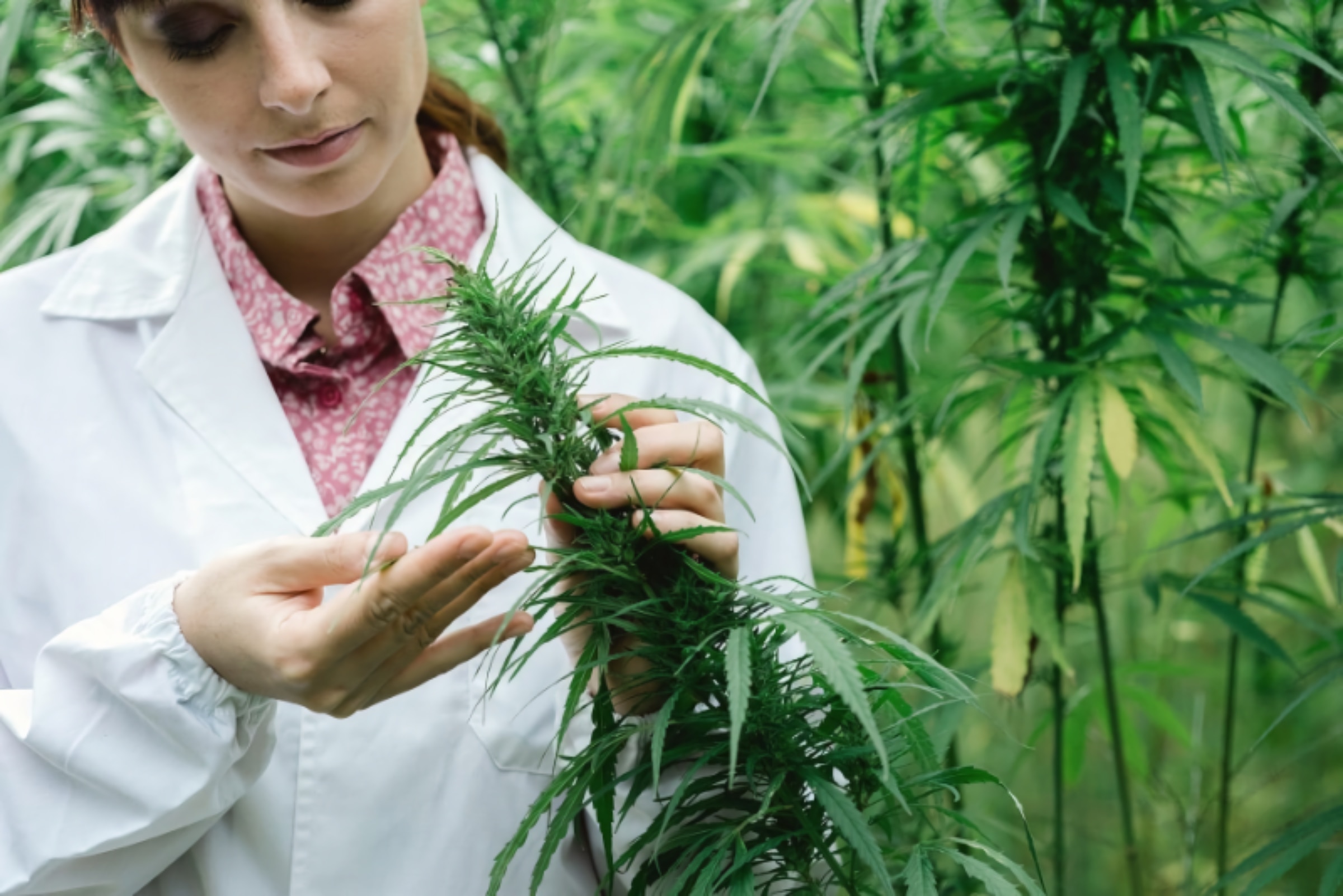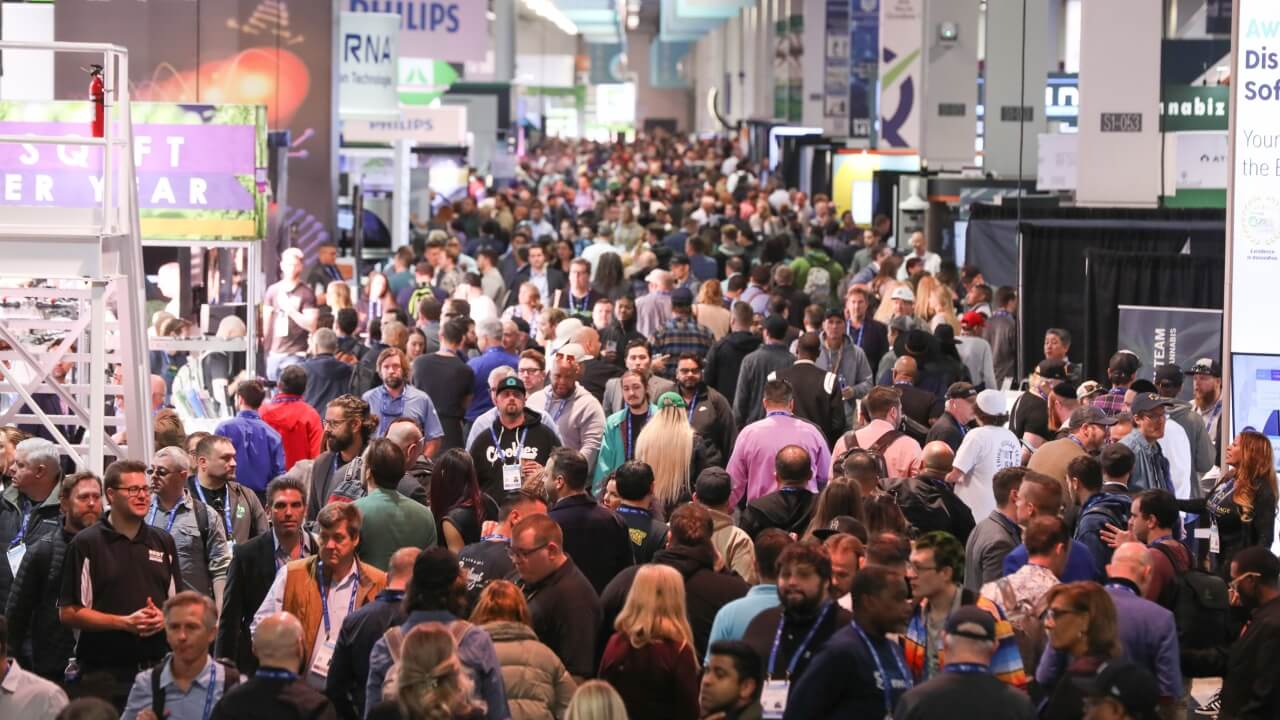Lab Work: Cutting Edge Science
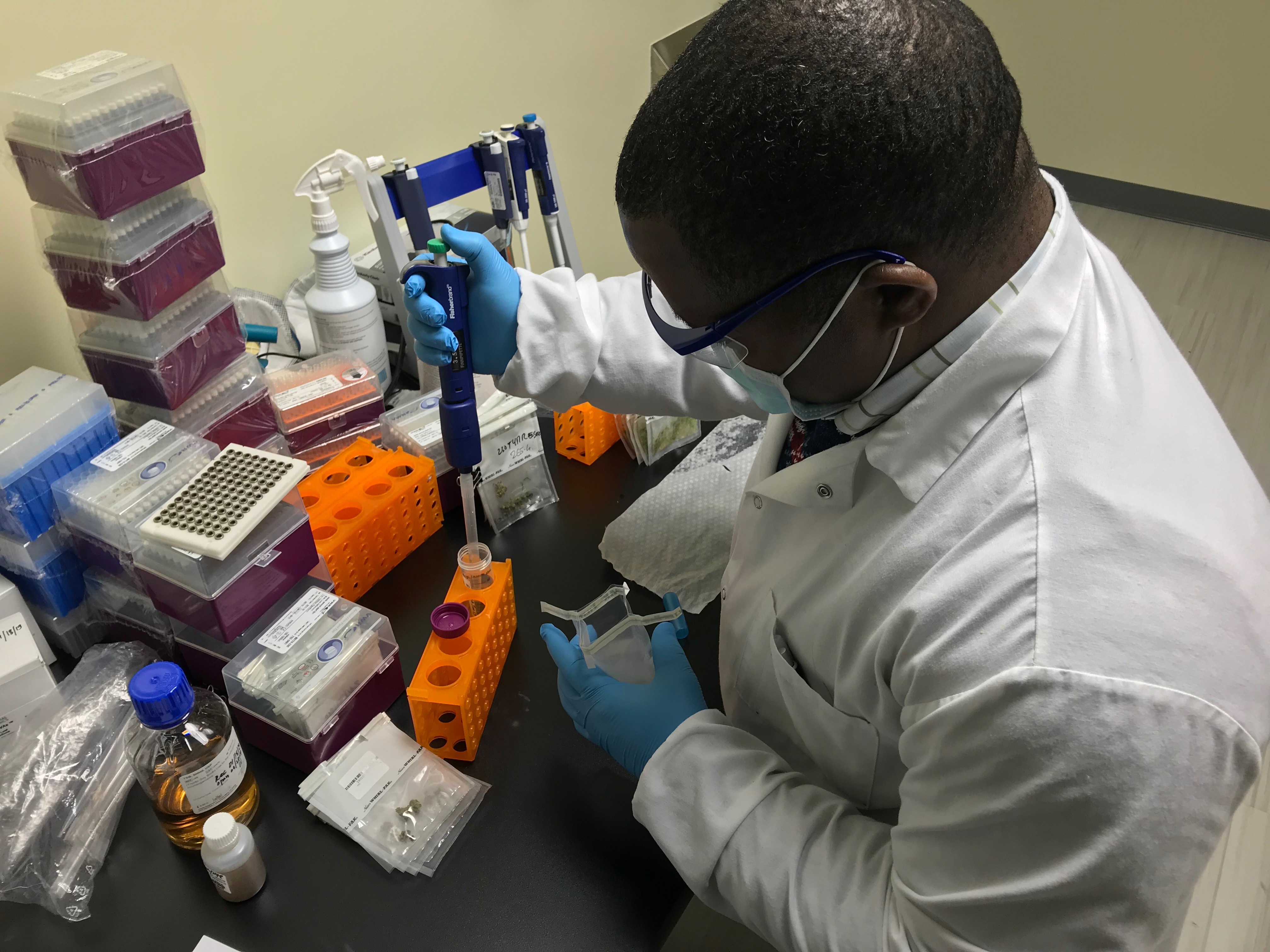 Quales biologist Enagnon Missihoun prepares cannabis samples for microbial testing. (Photo: Ajay Malghan)
Quales biologist Enagnon Missihoun prepares cannabis samples for microbial testing. (Photo: Ajay Malghan)
Quales, a cannabis testing lab in Frederick, Maryland, is remarkably sterile. There’s nary a skunky scent in the air—until operations manager Ajay Malghan leads me into what Malghan calls the “Shangri-La room.”
Quales lab analysts will move through as many as 50 samples from one batch for a single client.
Inside, the shelves are lined with bags holding pounds of Maryland-grown medical cannabis. In a corner are flower samples in vials arranged in lots of ten. Minutes later, we’re talking over the din of a machine pulverizing one of those samples into powder, a step Malghan plainly describes as “weird.”
“I’m collecting some of the most beautiful buds I’ve ever seen in my life, and that’s where they end up,” he says. “I kind of don’t want to tell the growers we do that.”
It’s all in the name of quality control. This is one of five state-certified testing labs that vet Maryland’s legal flower and concentrates.
In Leafly’s Cannabis Jobs in America series, we found that the state-legal cannabis industry created more than 64,000 full-time jobs nationwide in 2018. There are now 211,000 legal cannabis jobs across America. Those jobs aren’t limited to people who grow it or sell it in a retail setting Many opportunities are available to accountants, editors, drivers, attorneys, HR professionals—and scientists.
In states where adult-use retail stores are operating, state laws require licensed products to be batch-tested to insure safety and quality. That’s created an entire sub-industry of cannabis testing labs, where scientists use leading-edge technology to examine cannabis for mold, heavy metals, and other contaminants.
Is this a career option for you? Take a look at the day-to-day operation at Quales, one of four cannabis testing labs licensed in Maryland.
2 Years Old, 10 on Staff
Manoj Adusumilli, a veteran of the IT and medical billing sectors, founded Quales in 2017. His firm performs ten types of state-required testing, from terpene analysis (22 kinds) and potency to safety-related assessments for heavy metals, microbes, pesticides, solvents and more. The turnaround time for all ten tests is four to five business days.
They also perform research and development projects for growers looking for the strongest phenotype from a batch. Quales’ staff of eight (soon to be 10) will move through as many as 50 samples from one batch for a client. The results are always different, Malghan says.
“I’ve seen hundreds of Mai Tais, and it’s always getting better. They’re always exhibiting more intense characteristics.”
Pharma Experience Welcome
Lab director Jasmine Wang oversees the company’s testing operations. Her decades of pharmaceutical industry experience includes time with biopharma giant AstraZeneca.
A science background helps, but it’s also important to be adaptable, curious, and maybe open to some grunt work. Cannabis labs are startups too.
Under her supervision is a lab coordinator, who’s in charge of setting standards of practice for Quales, and Malghan, who picks up batches from growers and processors and otherwise serves as the lab’s day-to-day manager.
A small team of analysts carry out the actual tests. Each is entrusted with two or three realms—i.e. one analyst tests for heavy metals and terpenes, another works on microbial screenings. Lab technicians aliquot and extract samples for the analysts.
A constantly updating spreadsheet tracks the results on TV monitors. Once all tests are finished, the results are entered into METRC, the state’s seed-to-sale tracking system.
Familiar Equipment
Much of the equipment in the Quales lab is what you’d find in a pharma testing lab, Malghan tells me. Among their instruments—all Agilent, Bruker or ThermaFisher brand—are gas chromatography–mass spectrometry (GC-MS) machines to analyze terpenes and detect solvents in concentrates left after extraction; high performance liquid chromatography (HPLC) machines to measure potency; and assorted other devices to spot trace amounts of metals or microbes, identify pesticides or mycotoxins and more. (For reference, here’s Leafly’s recent guide to some of this tech.)
Pharma Vendors
Many of Quales’ vendors and contractors also come from the pharma industry. The former include major scientific product suppliers like VWR and Agilent; Phenomenex, which makes supplies used in gas chromatography and other machines; and Inorganic Ventures, producer of chemicals used in those instruments.
The lab’s sole contract employee, who fills in as a technician, previously worked at MedImmune and its parent company AstraZeneca.
Salary Range
As with most jobs, pay and position relate to experience and education. Malghan declined to divulge exact salaries, but offered some ballpark ranges for Maryland: $35,000-40,000 for technicians (usually requiring at least a bachelor’s degree); $40,000-$60,000 for analysts (bachelor’s plus lab training); and “at least six figures” for a lab director (at least a master’s degree, plus decades of experience). Some positions are overtime-eligible, Malghan notes.
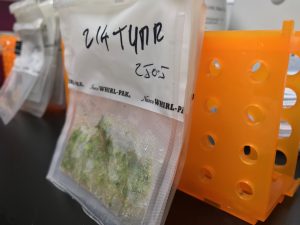 A sample of cannabis flower awaits testing.
A sample of cannabis flower awaits testing.
Most—but not all—of Quales’ staff members previously worked in pharmaceuticals and hold biology or analytical chemistry degrees. Malghan, a career award-winning artist with an MFA in photography, is an exemplary exception. He was drawn to the job by an appreciation for cannabis and a familiarity with lab work from growing up around his father, a chemical engineer.
A science background helps, he says, but for someone looking to break into the field, it’s more important that they’re adaptable, curious and maybe open to some grunt work.
“You just have to be willing to learn and have a clean slate, be willing to ask questions, take orders—and if need be, sweep up floors. If you disengage the ego, you can get in.”

